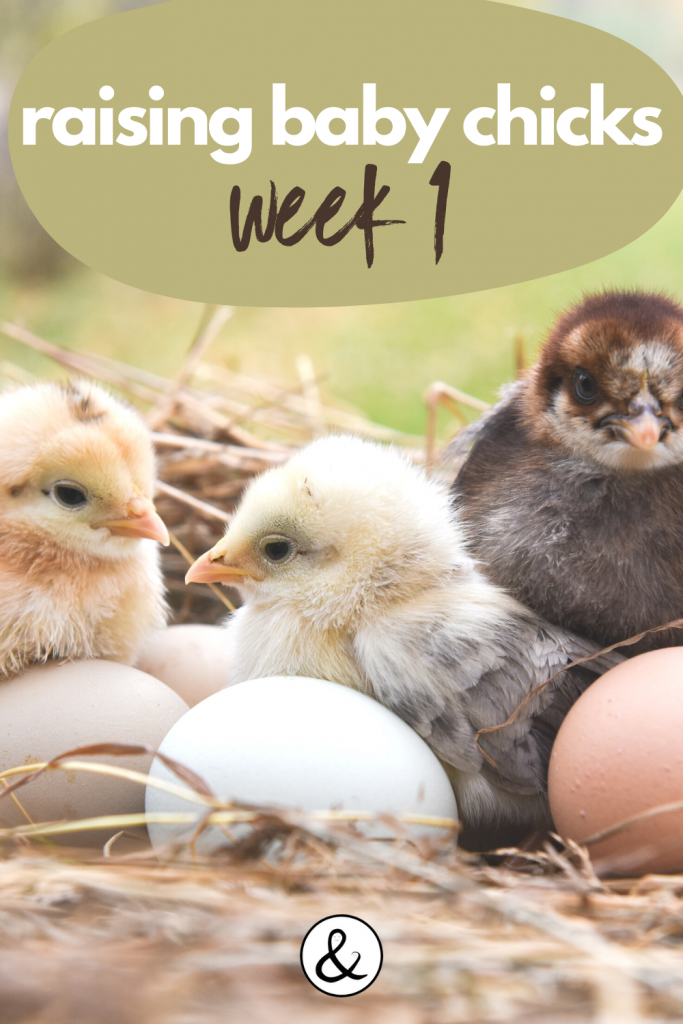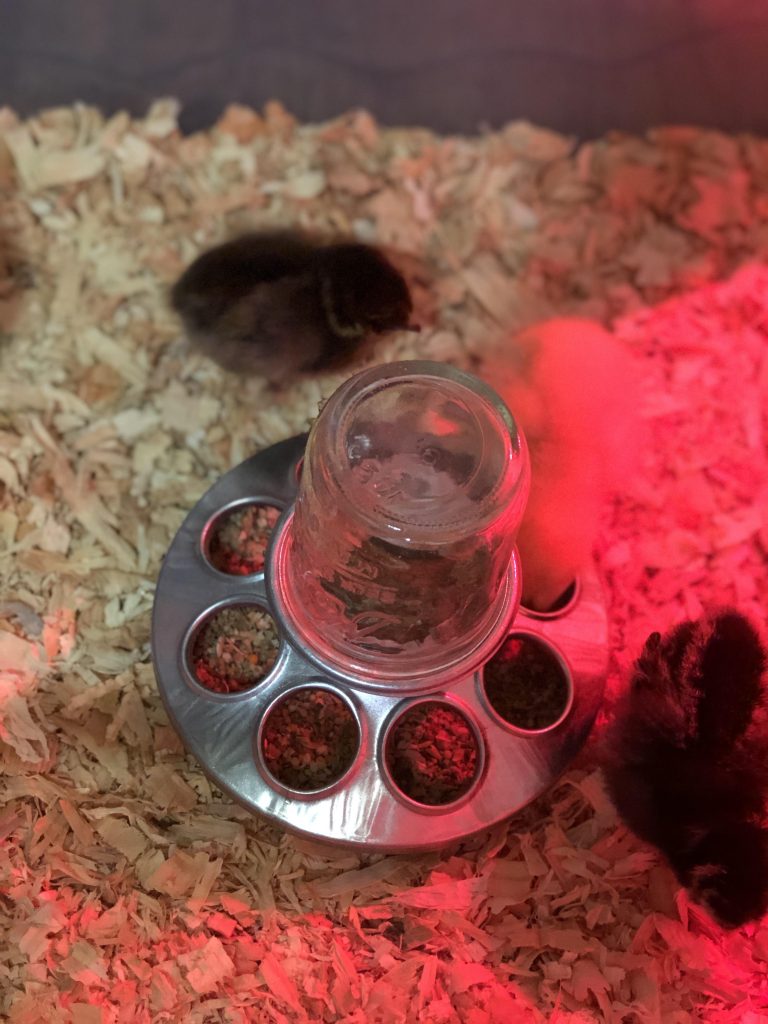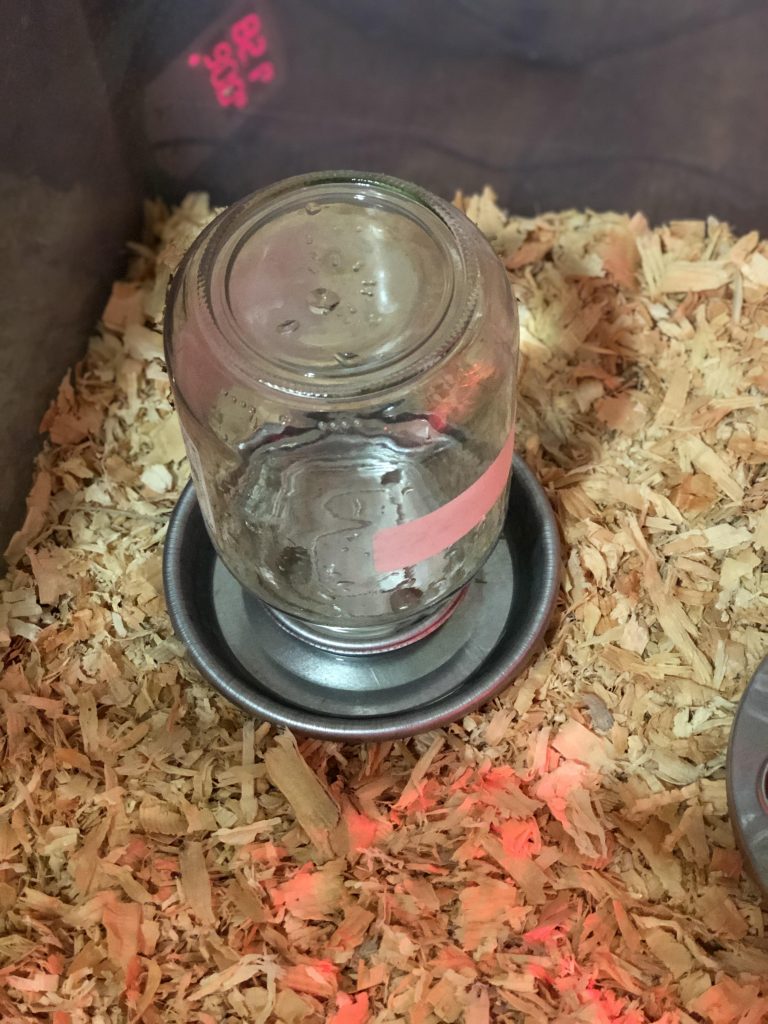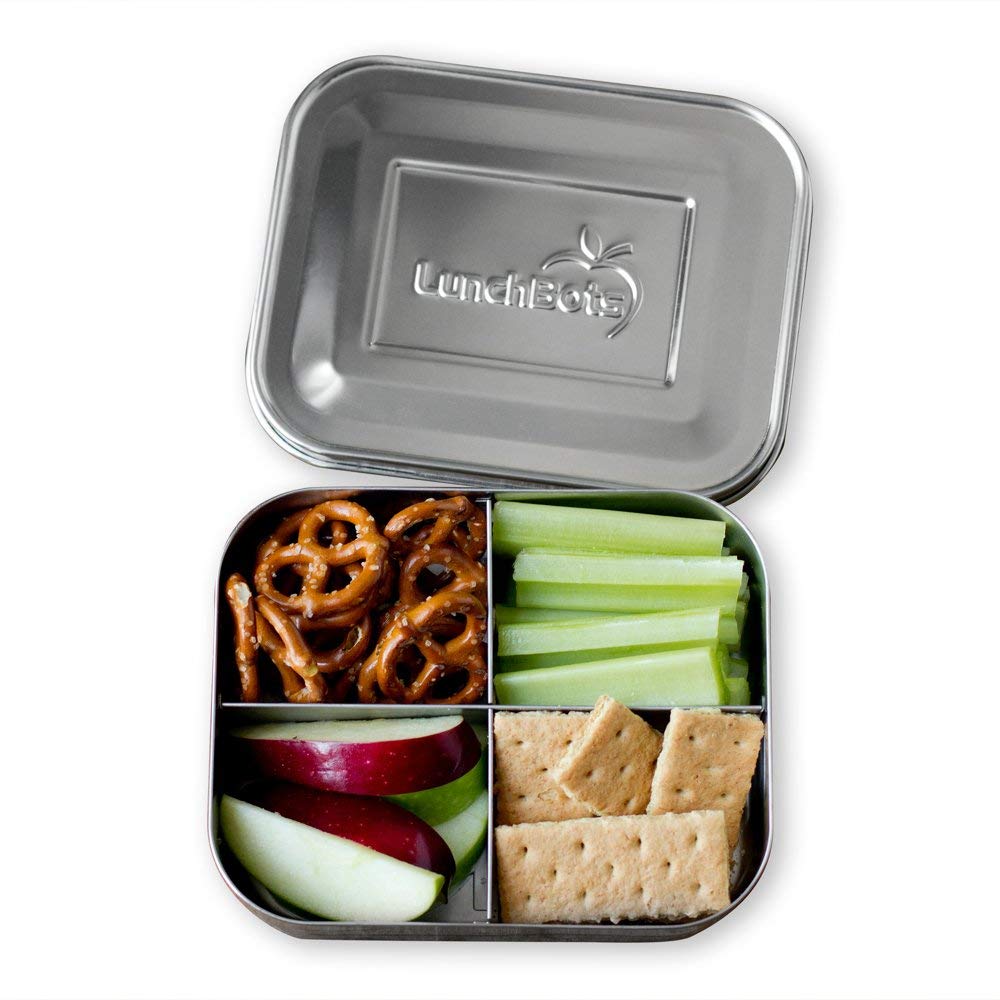This post may contain affiliate links. Click here to read my affiliate disclaimer policy.

Raising baby chickens is so much fun for the entire family! There are so many changes that take place in the first few weeks and they grow so fast. Chicks are the most work in the first few weeks, but much like raising children, time seriously flies! Here is what you need to know about raising chicks during week 1.

Raising Chicks Week 1
There is also preparation to be had leading up to the arrival of your chicks. We bought our baby chickens online and bought all of our essential chick supplies in advance.
Baby chicks are SO cute! Check out these little fluff balls of love. They are so dang cute to watch. Much like newborns, baby chicks in the first week love to sleep. They do eat and drink too, but the amount they eat picks up in week 2 and 3.

Feeding Chicks Week 1
Most of their food and water will be wasted and you will find yourself tossing a lot of it because it is full of poop and pine shavings. If you compost, all of this can be composted. In week 2 and 3, they start to develop skills to move the pine shavings out of their food. In the first week though, it seems like they don’t know how to dig for their food if it’s covered with poop and pine shavings.
We used an organic chick starter for their feed.
In the first few days, I used mason jar lids and replaced them multiple times a day. This helped eliminate waste. Near the end of week 1, I switched to small metal feeders that use a mason jar:
The taller and larger feeders are a bit too big for them at this age. But do keep them around because you will be switching feeders after 2 weeks since they grow so fast and start to eat so much food!
Behavior of Chicks Week 1
They love to cuddle up to stay warm and keep each other company. It is so cute! It is also a good indication of what temperate their brooder should be. Start with the temp at 95 degrees, then reduce it by 5 degrees each week. If they are all huddled up and it is 95 degrees, chances are they are ok. If your temp is at 90 and they are huddled up, increase it to 95. If you see your chicks panting or avoiding the lamp, reduce the temp by a few degrees to see if they are more comfortable.
We also found that using 1 heat lamp for our 8 poultry wasn’t enough, so we added a second light which made them much more comfortable. With both lamps, it reached 90-95 degrees much faster. By week 2 or 3, we went back down to 1 lamp.
Cleaning Out The Brooder
In the first week or so, we cleaned out the bin and replaced the pine shavings every other day. I think this is all dependent on the size of your brooder and how much poultry you have.
As they grow bigger and poop more often, you will notice how dirty and smelly it becomes. Your nose will tell you when it’s time to be cleaned.
Raising Ducks With Chickens
We also bought a duckling and originally our plan was to keep her in a separate brooder because ducks have different needs. As soon as they arrived in the mail, we knew we couldn’t separate them. You could see the bond they shared and how much the chicks loved to cuddle with the duck for warmth and comfort. You most definitely can raise them together!

One thing to note is that ducks grow exponentially faster than chickens. By week 3, they are double or triple the size of the chicks. Ducks start out the size of your palm and by week 3 they are about a foot long.
Another thing to keep in mind is that ducks love water. We were warned about how messy they are and how they will flip over the waterer and create a big mess for the chicks. Our duck isn’t as messy as we envisioned, at least not yet. She will make a little bit of a mess, but we clean out their brooder once a day, so it is never a problem.

We take her out once per day for a swim. We started doing this at one week old. Start with a small salad bowl of water only filled about an inch high. You will start to notice when they can go in deeper water and larger “pools”.
When a Chick Gets Sick or Dies
We knew it was highly probable to lose a chick (or a few) in the first few weeks since their mortality rate is high. What I didn’t know was how hard I would take it. I didn’t think it would happen to us. They all arrived healthy so it came as a surprise.
A few days after their arrival, one of our Easter Eggers was acting rather strange. She was exhibiting signs of neurological problems and it seemed uncontrollable. It started with her opening and closing her beak, with or without noise. It continued 24/7 even while she was trying to sleep.
Here is a video of the first warning signs. Please note, it might be hard to watch. If you are like me and hate seeing animals suffer, it can be upsetting to see. I want to post it though to help other chick owners notice the signs. I remember searching all over the internet to find answers and there were too many illnesses that mimicked one another.
I can’t really say what she had or what caused this, but that is just the reality of the situation. They are much too young for medication and you wouldn’t want to give them a medication to treat something they do not have or they can become worse. If you see your chick doing this, chances are they aren’t going to make it.
There were many possibilities that came to mind like gape worms, respiratory illness or neurological problems. Without really knowing the cause, I separated her from the others in her own brooder. I knew taking her to a vet was out of the question. I don’t even know a poultry vet.
She continued to go down hill for a few more days until I realized she was not going to make it. It was really hard to watch her suffer and I didn’t know whether she was going to pull through or not. I didn’t know what to give her or not. At a loss, I spent a lot of time holding and comforting her.
I even contacted the poultry farm we bought her from and they didn’t recommend giving her any medicine. The only thing they recommended was adding vitamins to her water which I had done since day 1. We buy Chick Boost and add it to their water as directed.
At about one week old (give or take a few days), we lost our beloved Fluffy. My kids and I took it really hard. If you prefer to buy adult chickens, that is always an option too. The babies sure are fun though but they do come with their set of challenges.
Amazon and the Amazon logo are trademarks of Amazon.com, Inc, or its affiliates.









